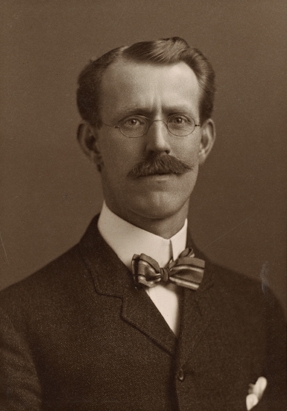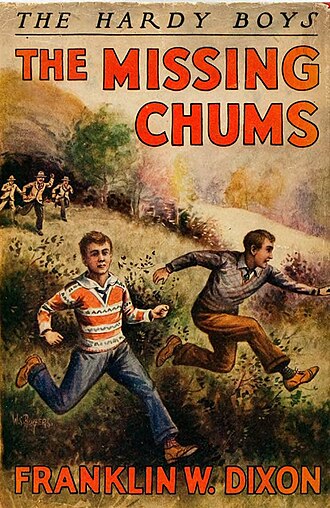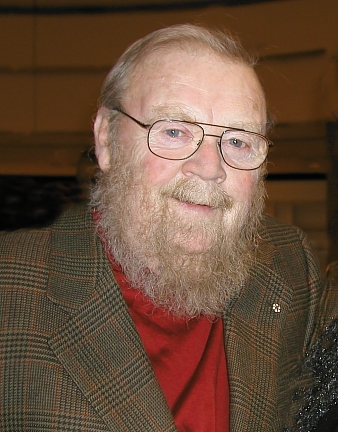Charles Leslie McFarlane (a.k.a. Franklin W. Dixon, Carolyn Keene), journalist, author, ghostwriter, playwright, screenwriter, film director (born 25 October 1902 in Carleton Place, Ontario; died 6 September 1977 in Whitby, Ontario). Leslie McFarlane was a talented and prolific writer. He worked as a journalist in both Canada and the United States, as a writer and director of documentary films for the National Film Board and as a scriptwriter for the CBC. McFarlane is perhaps best known for ghostwriting as many as 21 of the “original canon” Hardy Boys books between 1927 and 1946 under the pen name Franklin W. Dixon. He also worked as a writer and editor for Maclean’s and as head of the scriptwriting department at the CBC.
Early Life and Education
Leslie McFarlane grew up in Haileybury, Ontario, near Timmins. His parents were John Henry McFarlane, a school principal, and Rebecca Barnett. Leslie was one of the couple’s four sons. The family moved to Haileybury from Carleton Place in 1910 when John Henry McFarlane took a job as the town school’s principal.
McFarlane’s boyhood in northern Ontario was typical for the youth of his era. He enjoyed wintertime sports such as hockey and tobogganing. He was also a voracious reader who enjoyed children’s literature as much as his father’s extensive collection of books. He entered high school at age 14 and worked various jobs. This included delivering copies of the Saturday Evening Post, running errands for a bank, setting the type at the local newspaper and operating the projector at the local theatre.
While still in his teens, McFarlane’s talent for writing was recognized with awards. At the age of 15, he won an IODE (Imperial Order Daughters of the Empire) award for historical writing. At 19, he won second place in a provincial writing competition for a short story titled “Afraid.”
Journalism Career
Leslie McFarlane found work in journalism shortly after completing high school. He worked for the Cobalt Daily Nugget in Cobalt, Ontario. It is believed that he stopped using his first name when he began his writing career around this time. After about a year, he moved on to Sudbury, where he worked for the Sudbury Star.
About a year later, McFarlane decided the life of a reporter wasn’t for him. He decamped to a small cottage on the shores of nearby Ramsay Lake and tried his hand as a freelance writer. Ironically, his big break came as a reporter when the town of Haileybury was largely destroyed by a fire that swept through Temiskaming in October of 1922. McFarlane’s mother and many of the other residents of Haileybury fled to safety in North Bay, where McFarlane joined them and listened to their stories of the fire. He submitted a story based on it to the Sudbury Star, where it ran on the front page.

Career as a Children’s Author with the Stratemeyer Syndicate
Leslie McFarlane had contributed several articles and features to the Toronto Star Weekly when he took a job at the Springfield Republican in Springfield, Massachusetts, in 1926. It was while working for the Republican that McFarlane responded to an advertisement placed by Edward Stratemeyer, an author and publisher of children’s books. At the time, Stratemeyer published children’s mystery and adventure novels featuring the character Dave Fearless. The Stratemeyer Syndicate featured several writers working collaboratively and publishing under the pen name Roy Rockwood. McFarlane’s first contribution to the Dave Fearless series was a story called “Dave Fearless Under the Ocean.” McFarlane returned to Canada during this time, eventually settling in Whitby, Ontario.
McFarlane wrote six books as Roy Rockwood in the Dave Fearless series. However, he grew tired of the character and welcomed an opportunity from Stratemeyer to write the Hardy Boys mystery series. Writing under the pen name Franklin W. Dixon, McFarlane is believed to have written as many as 21 of the “original canon” Hardy Boys books, published between 1927 and 1946. The last Hardy Boys book credited to McFarlane, 1946’s The Phantom Freighter, is believed to have been written by McFarlane’s wife, Amy McFarlane (née Arnold). The Hardy Boys series is one of the best-selling children’s book series in the world, with tens of millions of copies sold. In addition, the fictional community of Bayport, setting for the Hardy Boys novels, bears a resemblance to Haileybury as McFarlane experienced it in his youth.
Despite the immense success of the Hardy Boys series, McFarlane never received any money in royalties or subsidiary rights. Instead, he was paid $100 per novel (roughly worth between $1,700 and $2,200 today). Throughout much of his life, McFarlane wouldn’t talk about having written so many popular and enduring children’s books, only opening up about it in his later years. He was contractually prohibited from revealing his identity as one of the Hardy Boys’ ghostwriters. Despite this, he was never bitter about not getting any additional compensation.

Career After the Stratemeyer Syndicate
While writing the Hardy Boys series, Leslie McFarlane also wrote the first several books of the Dana Girls series for the Stratemeyer Syndicate under the pen name Carolyn Keene. McFarlane was exceptionally productive during this time. He also completed two novels and many short stories for magazines. He also wrote short stories for Maclean’s and became an editor with the publication in the 1930s. Between 1938 and 1943, McFarlane wrote plays for the CBC’s Canadian Theatre of the Air.
McFarlane joined the nascent National Film Board of Canada in 1943 to work as a documentary film writer and director. During the Second World War, he wrote speeches for the minister of Munitions and Supply, C.D. Howe. McFarlane’s talents as a writer evolved alongside the evolution of mass media. He became a scriptwriter for CBC teleplays and was promoted as head of the CBC’s television drama script department in 1958.
In 1953, McFarlane was nominated for an Academy Award for the script he wrote for the documentary drama Herring Hunt. He also briefly worked in Hollywood, writing scripts for the popular Western Bonanza! Over the course of his writing career, McFarlane wrote 70 plays.
McFarlane returned to writing for children, penning McGonigle Scores! in 1966. He wrote A Kid in Haileybury in 1975, and published his autobiography, Ghost of the Hardy Boys, in 1976.
Over the course of his career, aside from his work on the Hardy Boys and other syndicated series, McFarlane wrote a total of four novels, 100 novelettes, 200 short stories and 75 television scripts. He also produced, directed and wrote 50 films for the National Film Board. According to his son Brian, as well as his detailed diaries, it appears that McFarlane was generally unaware of the popularity of the Hardy Boys series and considered it a nuisance to write them, doing so only because it would put food on the table and coal in the cellar.
In 2006, McMaster University’s library received McFarlane’s archive, including correspondence, early writing, and his diaries.

 Share on Facebook
Share on Facebook Share on X
Share on X Share by Email
Share by Email Share on Google Classroom
Share on Google Classroom





